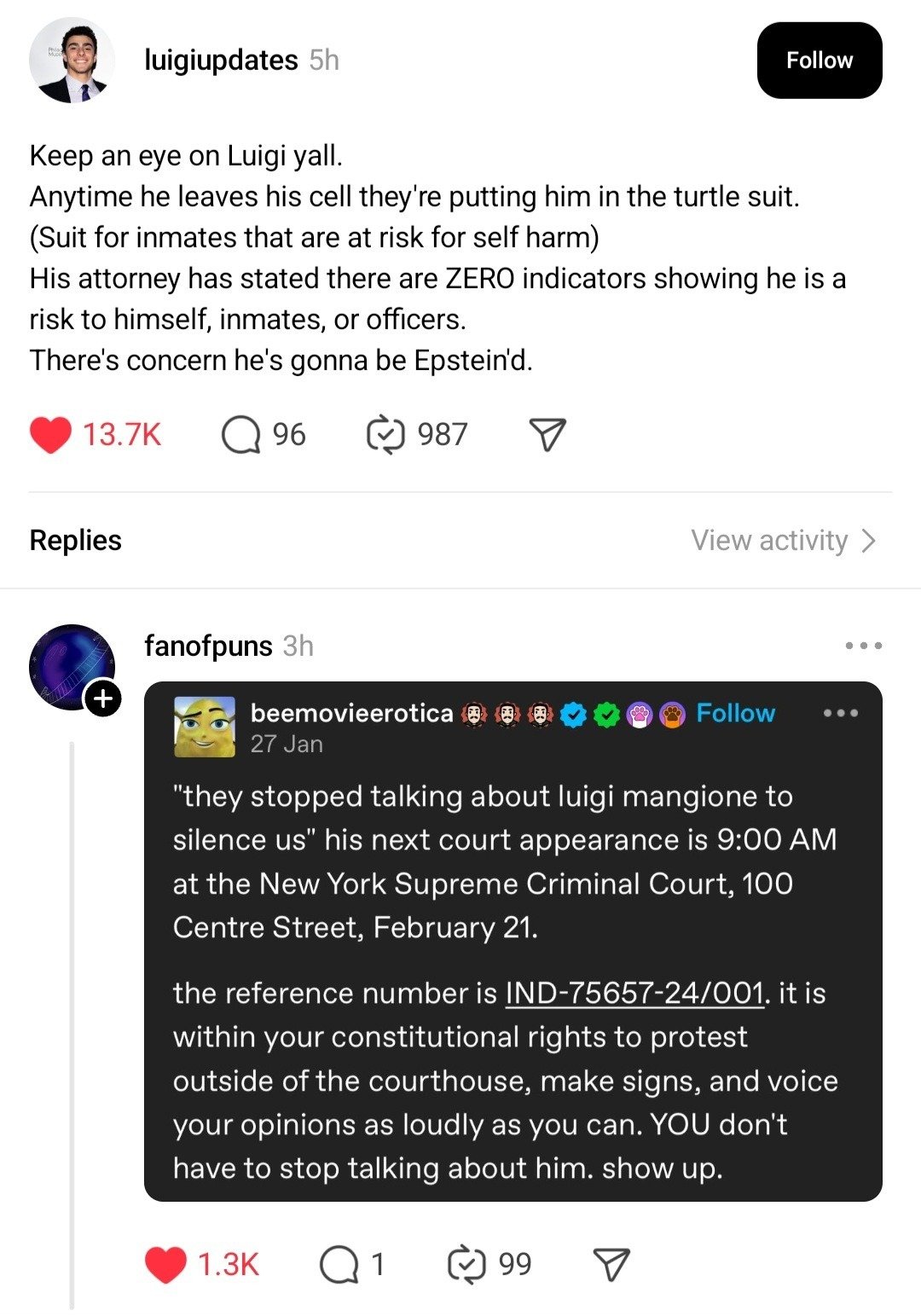this post was submitted on 12 Feb 2025
1323 points (99.3% liked)
Luigi Mangione
824 readers
359 users here now
A community to post anything related to Luigi Mangione.
This is not a pro-murder community. Please respect Lemmy.world ToS.
founded 1 month ago
MODERATORS
you are viewing a single comment's thread
view the rest of the comments
view the rest of the comments

Some subtleties there...what is the "wrong" choice?
If it's "the verdict doesn't match what the defendant did" - well, we don't always know for sure. If it's "the verdict isn't what I would have said" - hey, everybody likes to armchair quarterback. It's still up to the jury, though.
There's no subtlety. If it was later found out he was actually guilty but the jurors cut him loose, he cant be tried again and the jurors can't get in trouble for not finding him guilty when he was (and they would have found him guilty had they known). They couldn't have known, it's just common sense to not prosecute them.
There's also no armchair quarterback, thats not what that means. In none of my comments am i specifying what I would have done in either persons position from my armchair. I'm just stating facts about the law. (Not giving advice either).
Theres subtlety in jury nullification, but not in the jurors immunity. It comes from multiple laws and has precedence.